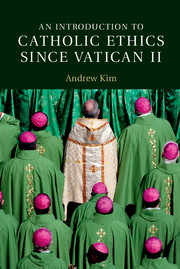Summary
CHAPTER I
Review Questions
What do philosophers mean when they use the words “objective” and “subjective” and what relevance does this have for the discipline of ethics? What do ethicists mean when they speak of “the foundations problem,” and what are some ways ethicists have attempted to deal with this?
What is moral relativism? What does moral relativism assume about the nature of ethical reality? Is there any truth in the various versions of moral relativism? What are some key areas in which moral relativism fails?
What does Bentham mean by “the principle of utility” and how does Mill expand this view? Where does Mill agree and disagree with Bentham and what difference does this make for utilitarianism as an ethical theory?
How does “act-utilitarianism” differ from “rule-utilitarianism,” and in what ways does Kant's categorical imperative inform the latter? How is Kant's ethical theory importantly different from all forms of utilitarianism?
Imagine an ethical debate between a slave abolitionist and a slave owner in the United States in, say, 1835. They are debating about whether slavery is morally acceptable or reprehensible. Now imagine that Hobbes, Hume, Hegel, Bentham, Augustine, and Socrates all show up. Based on what you learned in this chapter, who do you think would end up on the side of the slave owners, and who would end up on the side of the abolitionists?
Important Thinkers
Socrates, Plato, Aristotle, St. Augustine, Thomas Hobbes, David Hume, Georg Wilhelm Friedrich Hegel, C.S. Lewis, Jeremy Bentham, Richard Brandt, Immanuel Kant, J.S. Mill.
Terms to Know
Cultural relativism, emotivism, historicism, historical relativism, moral relativism, objective and subjective, the romantic ideal, Ring of Gyges, romanticism, social contract theory, absolute moral norms, act utilitarianism, rule utilitarianism, consequentialism, deontology.
Further Reading
For issues of clarity and scope, I have not dealt with the more contemporary forms of moral relativism.
- Type
- Chapter
- Information
- An Introduction to Catholic Ethics since Vatican II , pp. 191 - 204Publisher: Cambridge University PressPrint publication year: 2015



